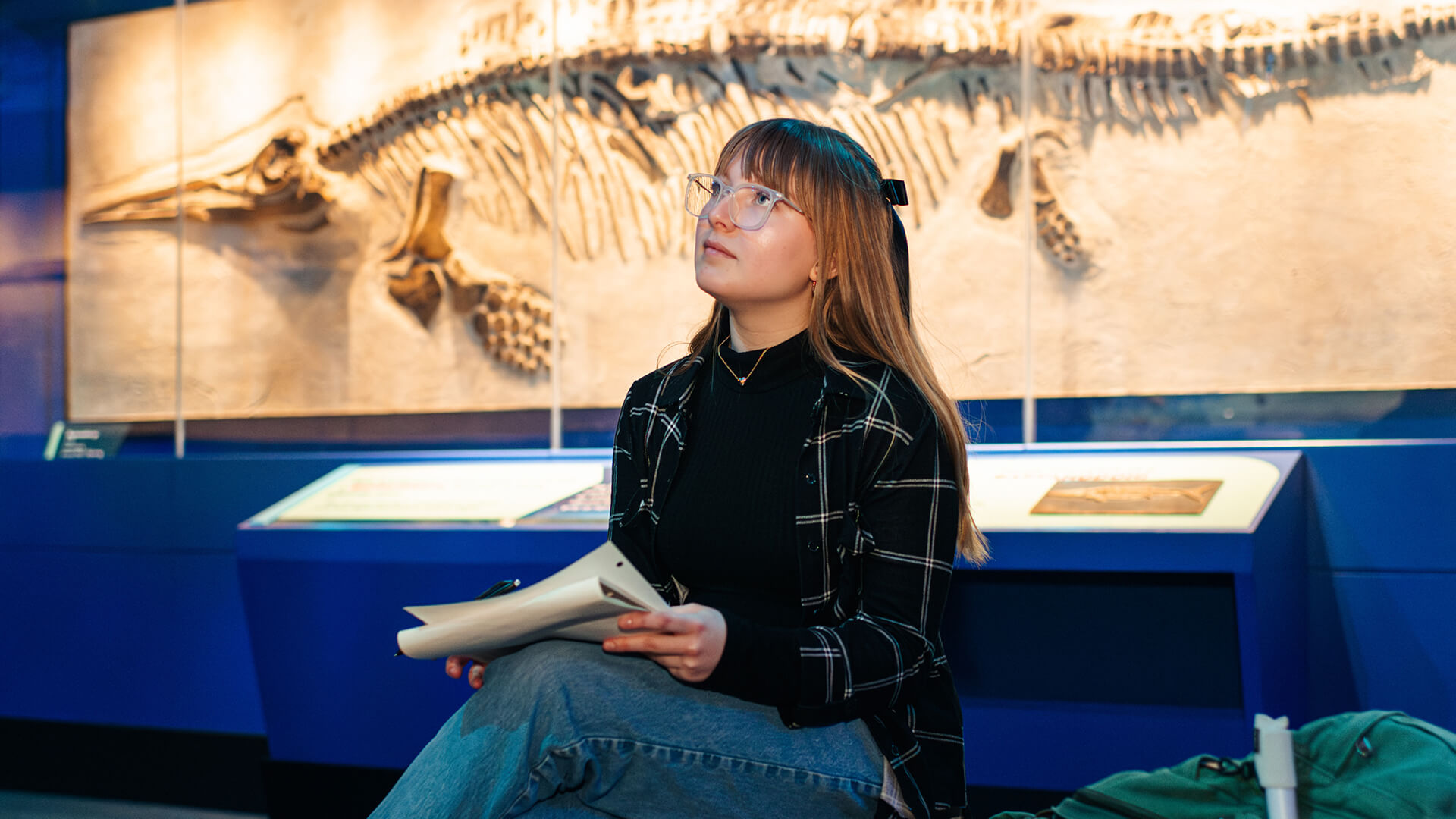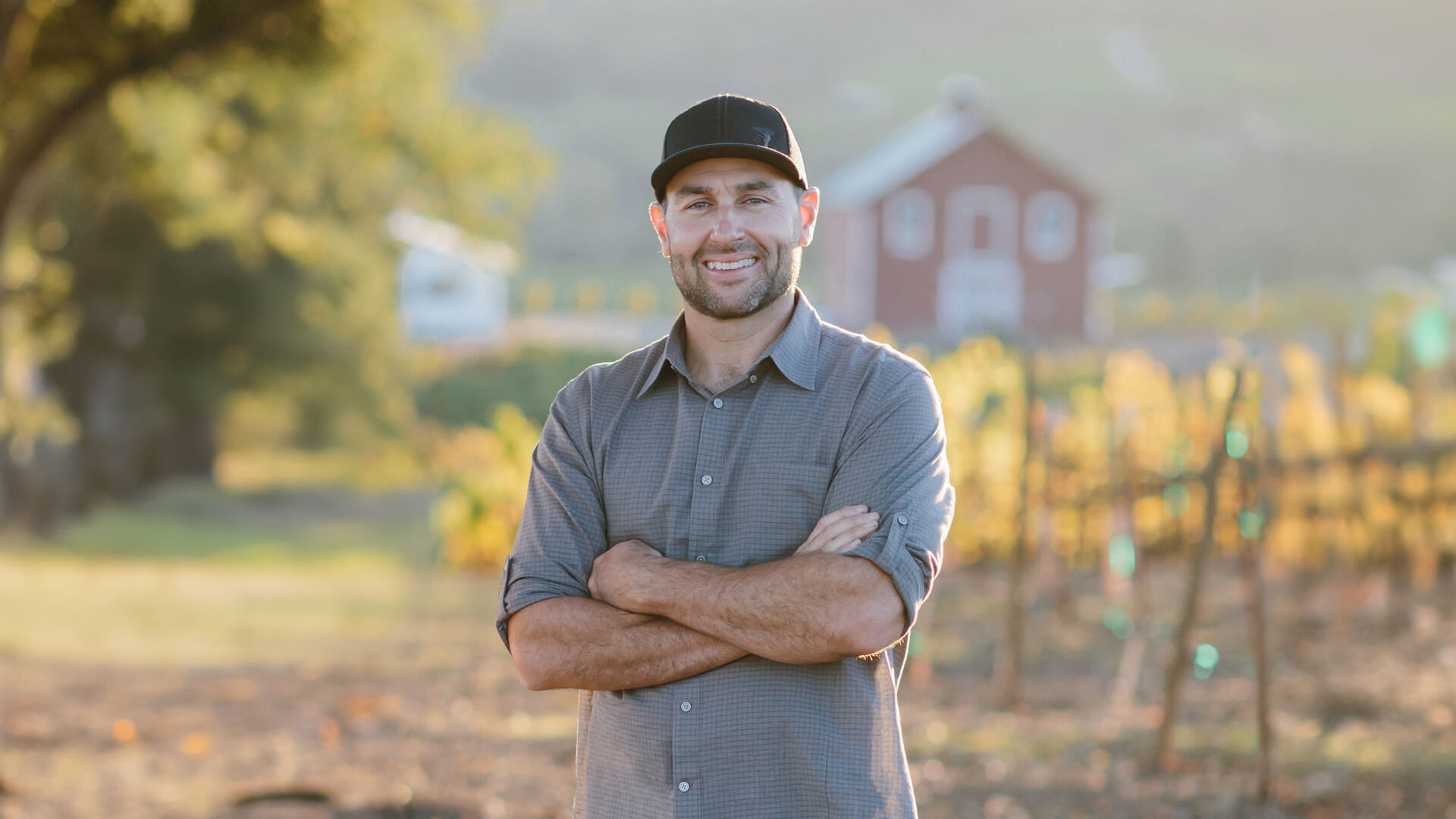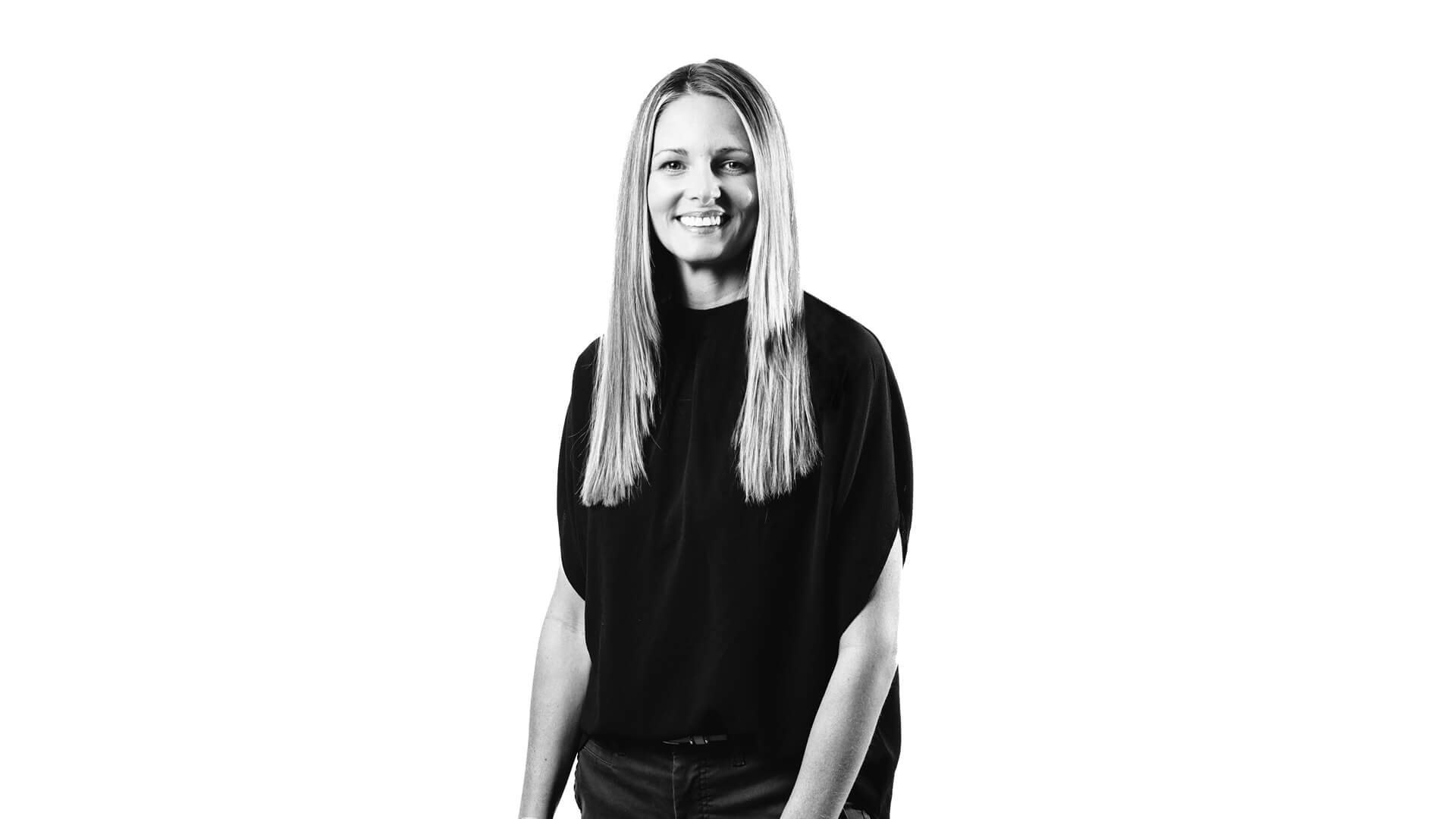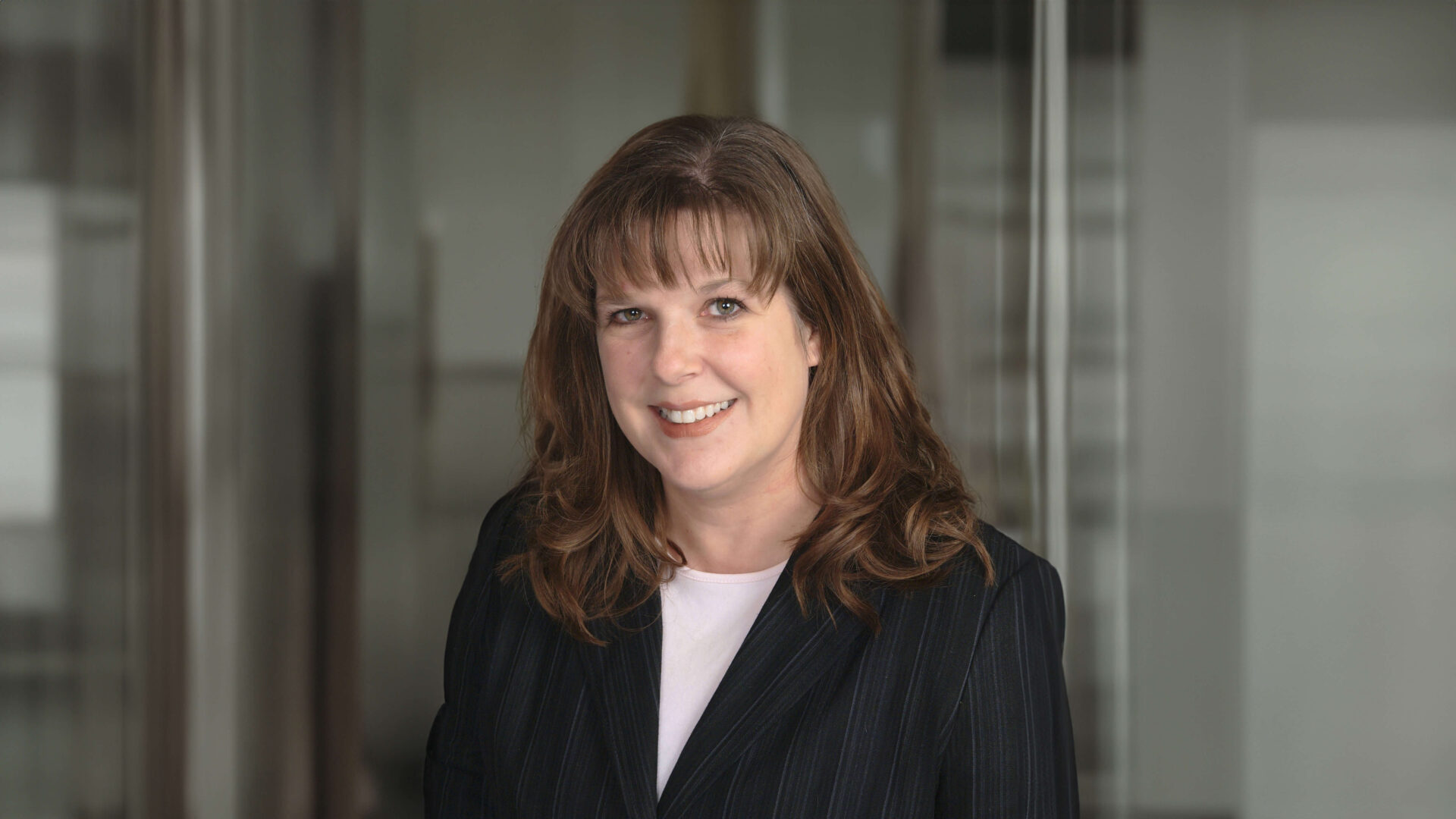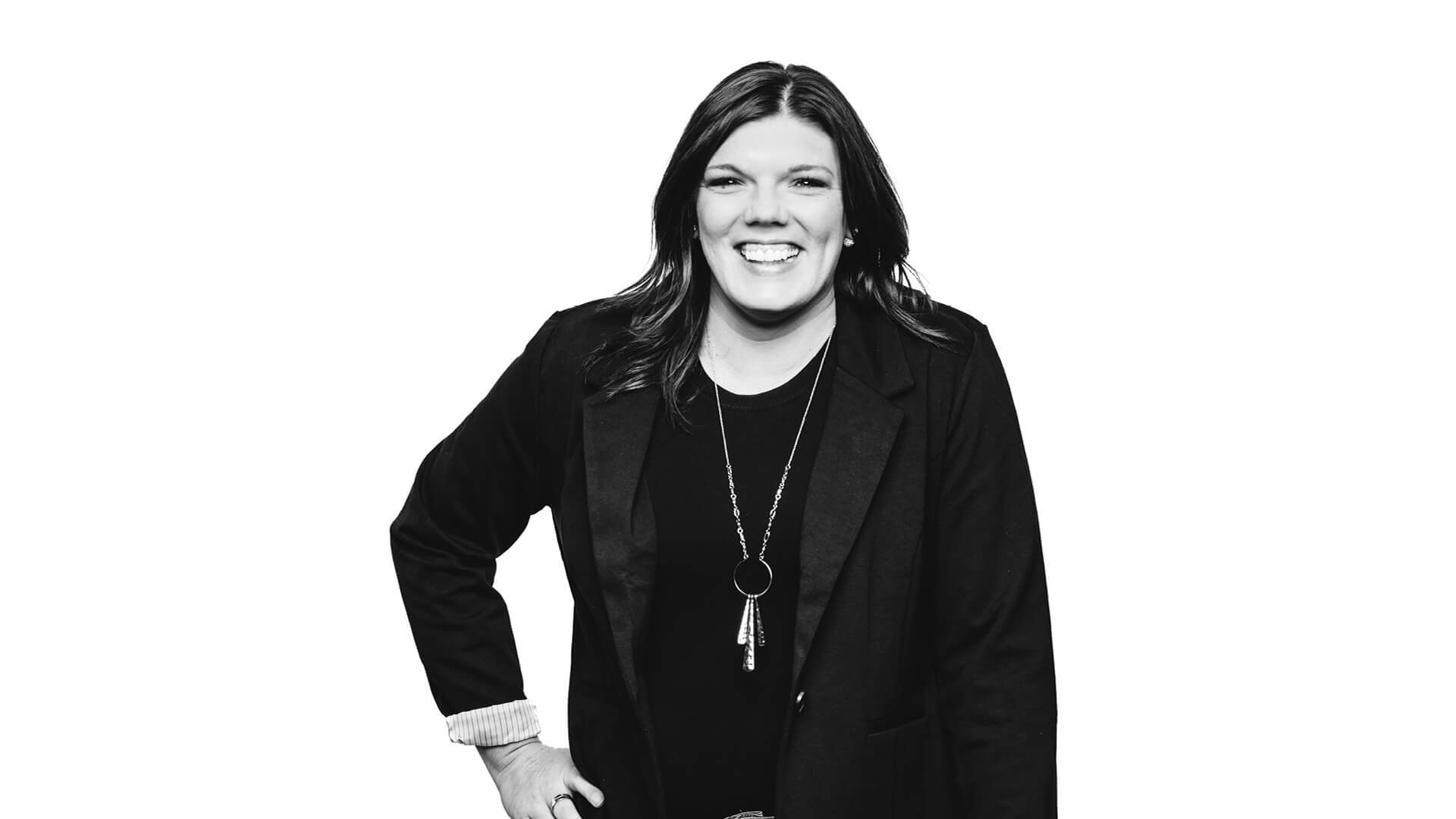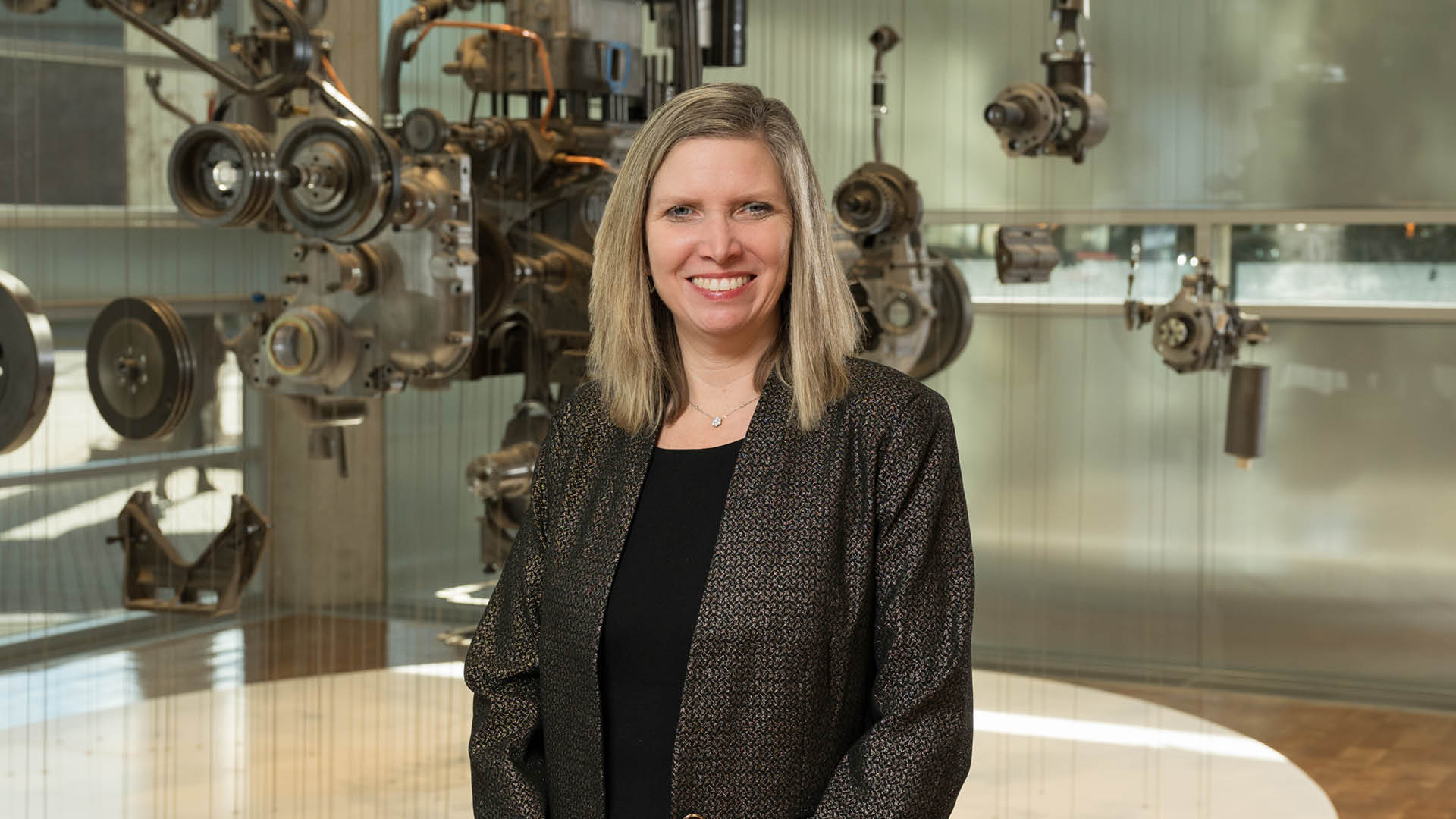Data science for all: Thriving in a human-centered, data-driven workforce
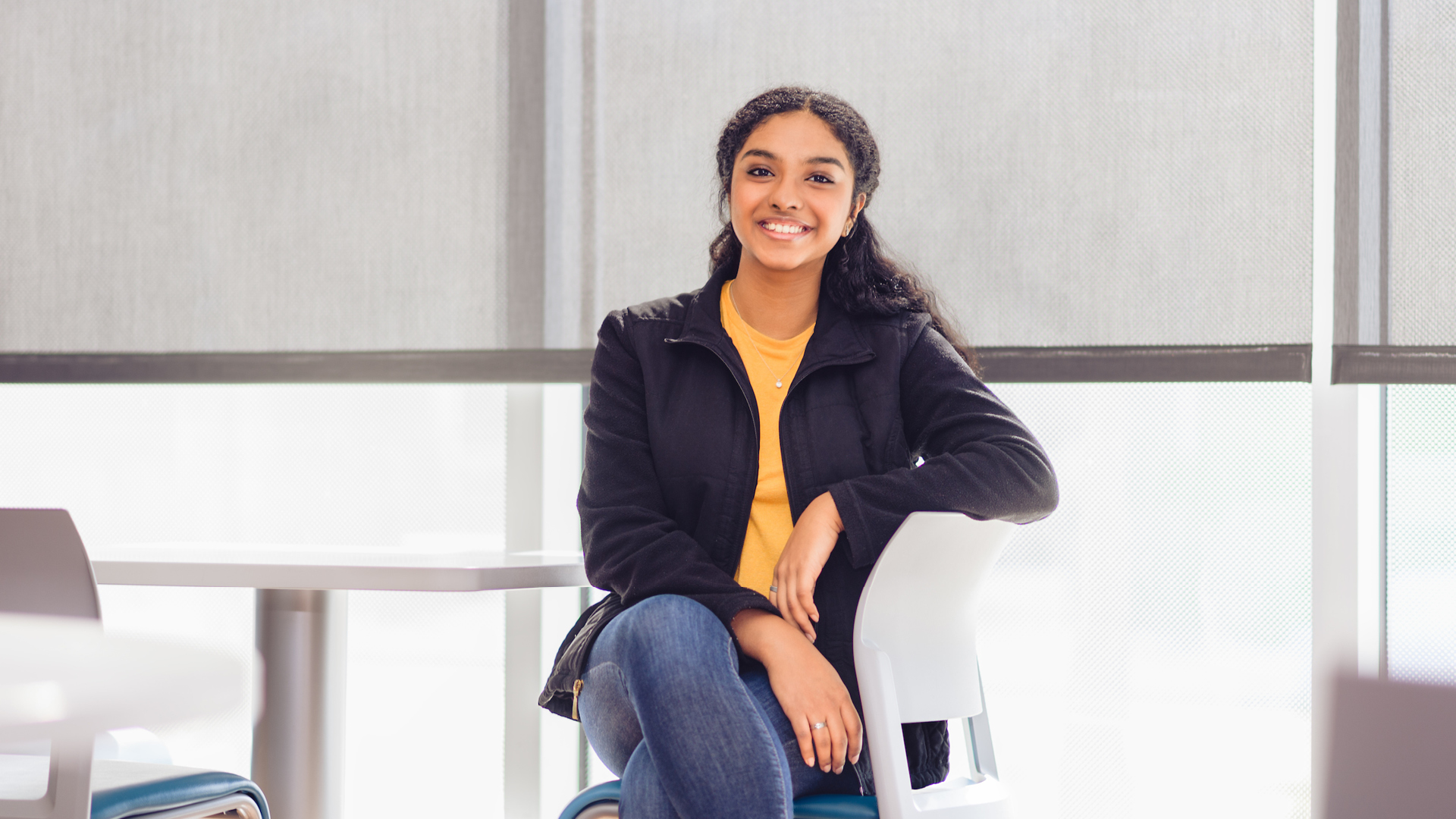
If you think about a typical college classroom experience, what do you picture? Maybe you imagine a professor standing at the front of a classroom or a lecture hall — and facing her neat rows of students diligently taking notes.
Whatever your idea of a typical classroom experience looks like, it’s certainly not The Data Mine.
The Data Mine offers a boundary-breaking learning experience for students from all backgrounds. This unique living-learning community housed in Purdue’s Hillenbrand Hall — affectionately known by residents as “Hilly” — gives students the chance to engage in project-based learning with major corporations and organizations like Beck’s Hybrids, Cummins, Microsoft and others.
In short, The Data Mine turns the world into one giant, data-driven classroom. Anticipating the need for a data-fluent workforce, Purdue is helping students take the next giant leap in preparing for jobs that, in some cases, don’t even exist yet.
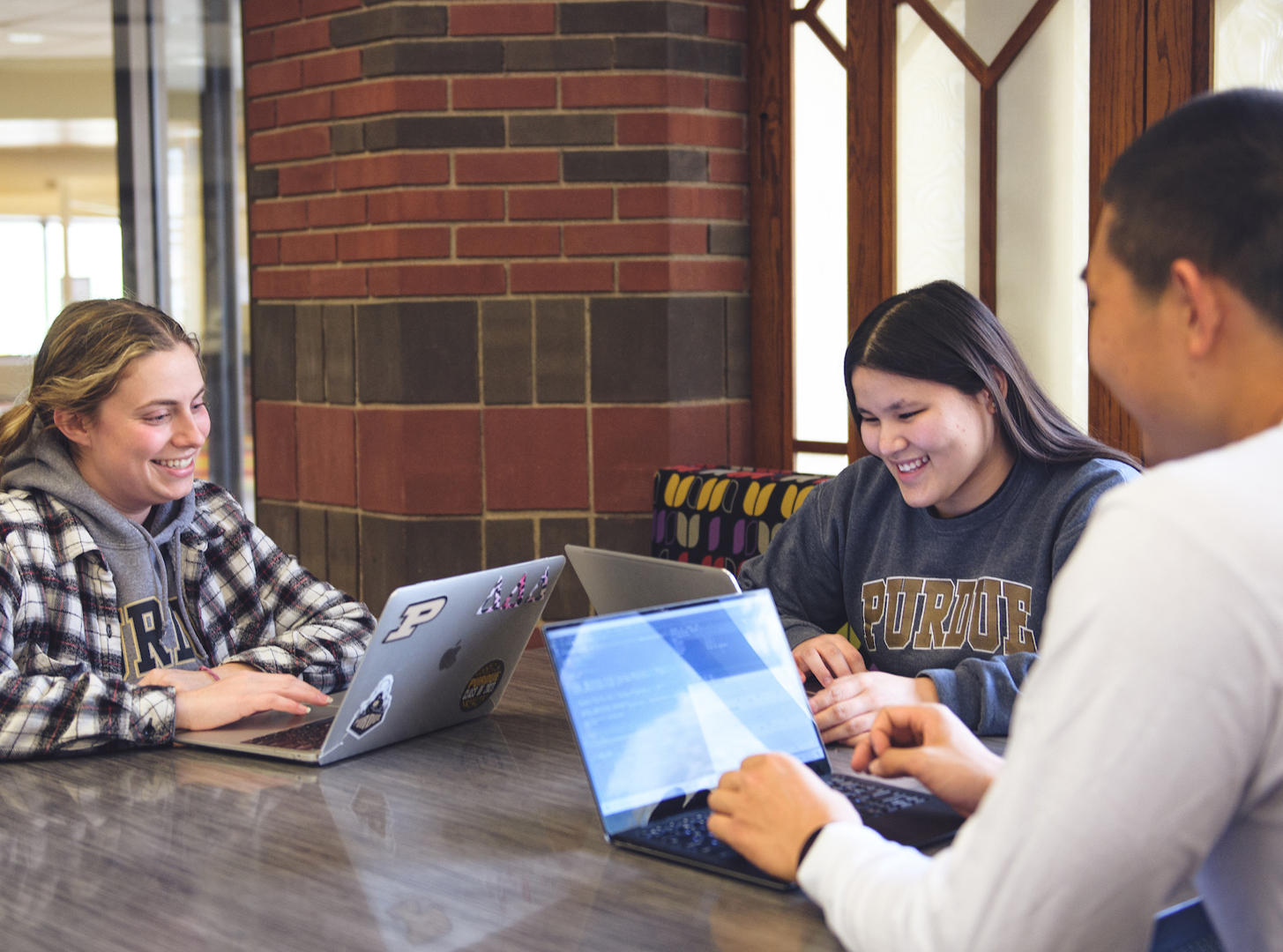
Rose Wilfong is a senior pharmacy student. In classes for her major, instructors provide constant reminders about the immense amount of time, effort and money it takes to bring a drug through the pipeline for public use.
“All of my classes have always talked about drug discovery, obviously, but they’ve always put a heavy emphasis on how long it takes and how expensive it is,” Wilfong says. By working with Jonathan Allen from the Lawrence Livermore National Laboratory (LLNL), Wilfong gets to step into that process and discover ways that she can contribute, not later in her career — rather, now.
“Dr. Allen has talked about the mission of the ATOM (Accelerating Therapeutic Opportunities in Medicine) Consortium and how LLNL plays a role in it, and I realized that it was a really fascinating project that had real-world applications.”
Wilfong and her team have weekly meetings with Allen, their corporate mentor, to stay on track.
“He gives us a roadmap of what we’ve been working towards,” Wilfong says. “We talk about our progress and then we also talk about upcoming tasks, upcoming improvements that we want to make within the next week, and then during lab, we actually go ahead and incorporate that.”
Taking initiative
The Data Mine challenges students to think for themselves — to ask questions, embrace opportunity and create solutions through a combination of personal initiative and interdisciplinary collaboration.
Annie Jancaric, a junior studying finance, thinks about it this way. The Data Mine “puts your foot in the door — but you have to do the rest.”
“If you want to make the most of your experience, you definitely have to strive to get to know people a little better or strive to do great on the team or make connections within the company,” reflects Jancaric.
Cai Chen, a junior majoring in agribusiness management, echoes Jancaric.
“The Data Mine makes it so you have to take the initiative yourself,” says Chen. “They give you the basic tools, but everything else — if you really want to succeed in the project — you must take the initiative and do your research. It’s a very fulfilling experience and the opportunities are endless because it’s whatever you want to make the project.”
While leadership positions are available — as teaching assistants, resident assistants and team leads — all participants are expected to take ownership of their experience. And this proves crucial for students as they learn to develop confidence in their leadership abilities.
I feel way more important, that I have something to offer to Purdue as a whole — not even just The Data Mine — which is awesome.
Annie Jancaric, Class of 2023
Working together
By sharing perspectives, working across disciplines and teaming up with corporate partners, students in The Data Mine are active participants in modeling the future of work. They’re becoming workforce-ready — not just by developing knowledge about data science and how to apply it, but just what it means to participate in a collaborative team environment.
“The Data Mine — compared to other classes — it’s completely different,” says Jancaric. “I don’t have to sit in a class and watch a lecture and then do homework, do an exam, then get graded. It’s a nice break to have that structure where you work with the professors or work with the team leads in a different way where you’re all huddled around the table.”
Adithya Iyengar, a junior in mechanical engineering, says that working with students from other backgrounds might be his favorite part of The Data Mine experience.
“Purdue is such a diverse place. When you’re coming to The Data Mine, you’re not just getting data science majors — you’re getting majors from all across Purdue,” Iyengar comments.
Bringing diverse students together enriches everyone’s experience in The Data Mine. Jake Roach, a senior in applied statistics, echoes Iyengar’s feelings.
“One thing that’s great about The Data Mine is that you create a vast network of students and mentors — whether that be fellow students or TAs or The Data Mine staff,” says Roach. “Often, a lot of students will help mentor other students. That was the case in my project, with a master’s student and a sophomore. Throughout the project, she really took her under her wing and helped her with professional development skills.”
Roach’s example isn’t unique. With teams welcoming students from different backgrounds, years and majors, there are plenty of opportunities to ask questions and gain new knowledge. One of the most beneficial things, says Chen, has been learning from students in other majors while working on a team with farming equipment giant John Deere.
“We’re a part of the supply chain team, and I knew nothing about supply chain,” says Chen. “My team has brought up really cool ideas of optimization and different ways to approach the problem of supply chain that I probably would never know about.
“It’s like a whole new experience, and it really helped me grow. I can now actually talk a little bit about supply chain with people. I’m constantly learning. I feel like I’m growing continuously in The Data Mine.”
Roach says that his interactions have played an active role in shaping his future. Not just in preparing him to analyze and apply data science in the workplace, but also in terms of appreciating the need to tackle problems as a team — being open to others’ ideas and learn from their perspectives.
“I’ve learned mostly how to be a really good teammate based on all the great teammates that I’ve had,” Roach shares. “And that means more than just doing your share of the project. It means being open to others’ ideas; you don’t always have to be right to help the team get the right idea.”
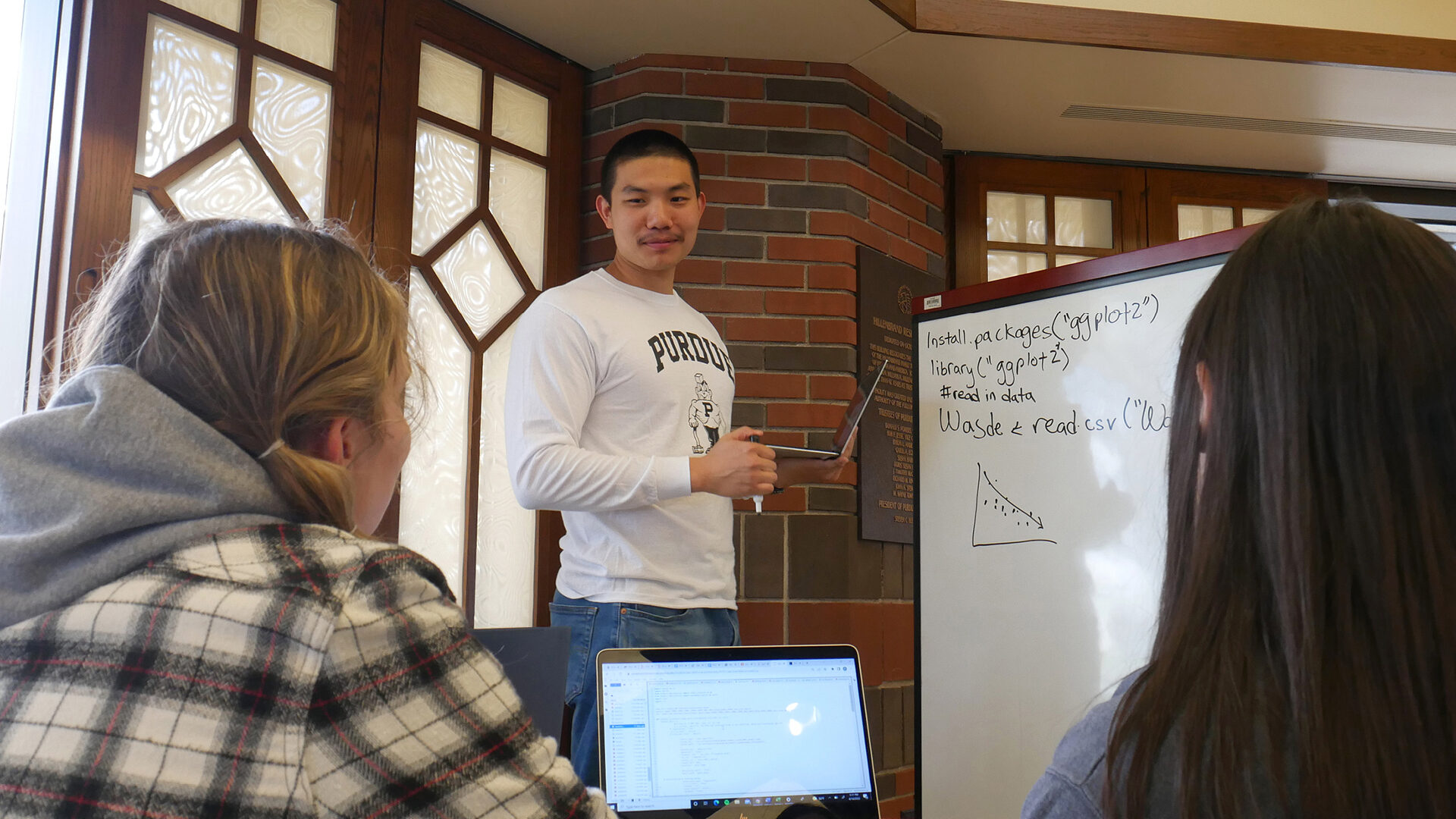
Transforming the future, today
During the COVID-19 pandemic, Jancaric and her team worked on a project in collaboration with Sandia National Laboratories to evaluate flight data globally.
“We took the COVID-19 flight data from around the world and analyzed it to help make better recommendations for the industry in the future,” says Jancaric. “I feel like we are impacting Sandia National Laboratories because of all the work we do. It’s crazy to think it’s helping this huge company — to think that us, as undergraduates, just have that impact on a bigger company.”
Roach shares this outlook.
“One thing that I love about The Data Mine is the focus on the application of the work we’re doing and not just the theory,” comments Roach. “A lot of students spend time learning the math and computer science, but The Data Mine focuses on how we can use this information to change the world.”
The outcomes in The Data Mine are much bigger than a grade — and they even eclipse the impact of the project deliverables. Wilfong, who graduates in May 2022, shares that her experience in The Data Mine has helped her think differently about her future career plans.
“When I started as a freshman, I was on the track to be a pharmacist,” reflects Wilfong. “Working with The Data Mine has really showed me that you can work within a data-driven job or a data-driven project and still make significant contributions to research. So, it’s really helped me figure out what I want to do in the future and the graduate programs that I want to apply to.”
As reflected in Wilfong’s experience, The Data Mine is a powerful experience regardless of your major.
“Think about it as not a change of curriculum, but a supplement to your curriculum,” says Roach. “It’s a great way to add data science to the work that you’re already doing. It enriches your curriculum — not just through the courses you take, but through the people that you meet.”
“This is a very unique experience,” says Jancaric. “People from across The Data Mine are coming to me and asking me to be part of things — and, in my opinion, it looks great on Purdue and it looks great on The Data Mine. And I’m really proud to have Purdue’s name on all of these ventures that we do with other companies.”
